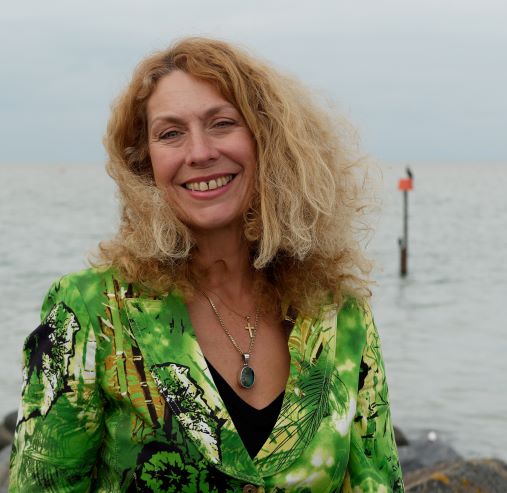Author and editor, Madeline White, on how our role as the consumer can interfere with our creative side.

It would be much easier if consumption and creation were compatible. But, to my mind, they’re not. Contemporary consumerism demands a coinage that is quite removed from the creative one and comes without an off-switch. To fully participate in this world, we need to be able to fund the lifestyle we’re expected to engage in. We are therefore pushed to make money and focus on financial security, curtailing the scope of our words and ideas. In short, this constant stream of information, and the call to engage, dulls our creative energy.
The currency of creativity is quite different. Our imagination feeds on a number of things that bear no relation to making money. It’s as though two worlds are colliding, with us writers performing a mad juggling act with objects akin to a feather and a shotput! At best, they overlap in a mad, Dali-esque counterpoint but, at worst, this peculiar performance can stop us creating altogether.
One of these places of collision is the way we work. A strong, consistent work ethic is necessary for writers. However, this can easily slip across into the consumption process if we work to excess to help us avoid or change the way we feel. Crashing due to exhaustion will ultimately stop us writing.
Another peculiar overlap between consumption and creation is around how we see success. If we base our creative coinage on traditional measures, such as the numbers of readers engaged or the money we make from writing, it’s difficult to maintain the sense of self-worth necessary to keep ourselves going.
This brings us to the dilemma we writers face. In a quick-fix world of immediate gratification and superficial measures, the very things that make us good writers are not recognised as being of value. This means we have to create and maintain that sense of self-worth ourselves, having faith that the magic moment – when the value of our creativity turns into real monetary value—will happen, while remaining aware that it may very well never do so.
The rules of creativity are ephemeral. Set against this, the rules of consumption are easy. We pay money, or give time or information, in order to consume. Consuming more than we need makes us feel better, so there is a tendency to do it time and again. It’s a vicious circle, which makes it very difficult to create a place that extends beyond ourselves: a safe space that fosters our creative courage, while allowing us to welcome our readers in. In my case, this safe space is all about balance and the creation of personal boundaries: exercising, reading (but not obsessively), spending time with my family, and mindfulness most of all. In these times of pandemic, maintaining this balance is even more important.
As we move past the point of no return, from a pre- to post-pandemic existence, we need to be able to visualise a different future: a new way of life that works better than the one we had before. Having the courage and space to create will, therefore, be more important than ever. However, the digital world, along with the persona we have created to navigate it, won’t just go away. We need to harness it creatively. This means building on lessons learned, including the challenges of the last 12 months. Defining a new creative coinage means taking advantage of the kind of collaborative opportunities Pen to Print, and similar organisations, offer. Supportive communities make us hungry for each other’s creative energy, rather than just ‘stuff’, giving us the strength to create what is needed, rather than what we’re told we need.
This is an abridged version of an article that originally appeared on pentoprint.org. Click here to read the original post in full
Madeleine F White is the Editor of Write On! magazine, and author of Mother of Floods and poetry collection, The Horse And The Girl. You can connect with her on Instagram and Twitter @madeleinefwhite
Write On! welcomes submissions, in written and audio format. See pentoprint.org for further details or submit to pentoprint@lbbd.gov.uk
Comments